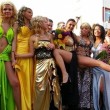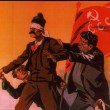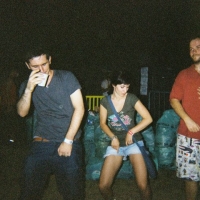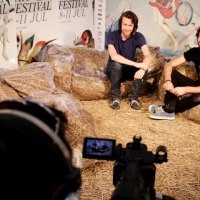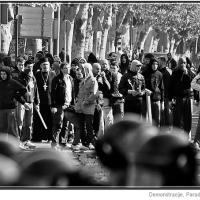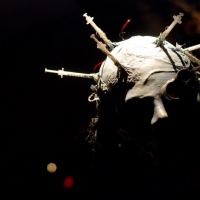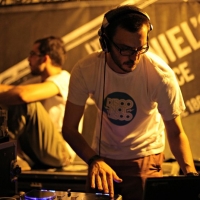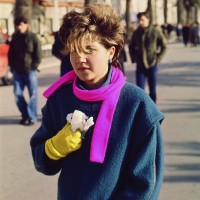The Huffington Post blogger writes for Bturn, offering her personal, wrist-slashing account of the lives of ordinary Greeks in times of economic downfall
Teaneck, NJ: In the card section at Walgreen’s, there are no Sympathy cards labeled ‘Loss of a Son’ or ‘Loss of a Daughter’.
Even Hallmark seems to have drawn a blank when faced with that marketing opportunity. Loss of a Mother, Loss of a Father, Loss of a Friend, Loss of a Loved One, Loss of a Pet: all there. But . . . ‘Loss of a Child’?
I can hear Doug and Dave down in Marketing: “Let’s just not create those categories, OK? Let’s, just for once, show a bit of restraint. What would happen, I wonder, if ‘Loss of a Son’ got placed, just by accident, say, next to ‘Loss of a Pet’? Wouldn’t look good for us. Not good for us, Dave.”
So the unthinkable remains the un-marketed. An opportunity lost for profit; but, a nod to common decency? Or, just perhaps, it’s only my local Walgreen’s that has chosen to suppress those categories. Perhaps I give American corporate entities too much credit.
Kneeling in the ‘Mahogany’ section (the best cards these days are those marketed to Black buyers: trust me on this one), I finally found a card I could bear to send to I’ll-just-call-her-Maria.
I then sat in my battered 2001 Ford Explorer—I will never again buy a car; I belong, in America, to the long-unemployed 99%—in the strip mall parking lot, and wrote inside, in shaky Greek:
“Maria-Mine [English has no “attachable pronouns of possession”: we English-speakers don’t seem to have those feelings, either], I am sending you my heart, for safekeeping. Place it where yours used to be; where that broken, not-beating thing is now. There is nothing else I can say or, from this distance, do. There is nothing, in any event, that will bring back your son, my student, the father of your granddaughter, the light of your life, and always, also, a light of mine, our shared darling, Hermes. I love you. Elisavet”
Then, I put a $1.05 stamp on the envelope, and sent that card to Greece. And now I am here, sitting in the dark.
Over a year ago, I foresaw clearly that Greece, my second homeland, would lose at least a generation—two, most probably.
It would lose—to suicide, slow starvation, and silence—everyone over 60, living on pensions, to what Europe euphemistically calls ‘The Crisis’. It would also lose those 45 to 60. Half would be unable to live on their slashed, and then slashed again, pensions; half, forced out of work, would be unable, at 50, at 55, to find new jobs. All would not survive the insane new taxes, the lay-offs, the collapse of Athens.
What I knew back then, what I saw coming, for Greece has, in fact, come to pass, and come to stay: utter desolation for all but the very, very rich, who got their euros out and into Swiss banks or French francs. Maria’s husband, Hermes’s father, leaped down a Greek island well at the very beginning of The Crisis. Now, his youngest son, and the extended family’s sole breadwinner, has followed him across the Lethe.
This gentle, mindful, loving 38-year-old began by slashing his wrists. However, finding that that did not quickly enough produce the desired result, Hermes, with the same knife— and he was a master craftsman, an artisan who apprenticed to his father —disemboweled himself.
Disemboweled himself.
In Europe. The Europe now run by Germany and Holland and France and their banks, et al. The Europe that views the Greeks as dishonest, lazy, ‘other’, and has, as a result of these judgments, nailed Greece, Christ-like, to the upright death-posts of ‘Austerity’. (Ahhh, we Northern Europeans, we speakers of the Romance Languages, have such a talent for euphemism—a Greek word, I might remind you.)
So, Maria, wearing black, perpetually, for her husband, who saw no hope for himself over two years ago, now adds black to black.
What sort of despair brings an educated, talented, able young father to bring out his own intestines with a blade? In Europe? In 2012? In the year of the Summer Olympiad in London? In the enlightened, ‘united’ land(s) of the euro?
What sort of despair?
And who, truly, is responsible, for Hermes’s despair, and his father’s before him? These two ‘lazy Greeks’, who worked their fingers to blood and bone all the years I knew them as adults, and who, when I first met the family, were living in two rooms, with an outdoor toilet, up a back alley, on a tiny Greek island where un-lazy Krauts and Brits and Frogs came to vacation?
These Greeks defaulted on no big-euro loans. They owned no big European villas. They paid their taxes. They, now, are in the Greek earth.
When I first met Hermes, he was six, or seven, an irrepressible child whom Maria used to accompany to my English-language classes, basically to sit on him for the duration. Hermes, at that age, was all laughter and motion: unruly and wild. I adored him.
Fast forward, and he became, under his father’s tutelage, a quiet artist of gold and pearls, a successful jeweler, a good father, a supporter of the dramatic arts on his home island, that tiny, arid dot of earth in the Aegean Sea.
Every year, I watched him grow; grow wiser and more soulful. Three years ago, I took a series of motor-drive portraits of him for my Greek website. He had his father’s face and his mother’s height and grace. He had the countenance of a smiling Greek saint. Standing against a whitewashed wall, his little daughter held against him, his arms wrapped round her, Hermes seemed to have retained the child he had been within the man he had become. When his father was defeated by circumstance, I believed Hermes would fill those larger, paternal shoes . . . and survive.
I was wrong on this one point. The Crisis ate him alive, as it had eaten his father; as it is eating alive so many worthy Greeks. Every day, I scan my email from Greece for news from the front line; news of needless, senseless destruction — Flanders Fields, in their new disguise, and without the poppies.
Sitting in the dark now, at this bright screen, I know very few things. But I do know that teachers should not outlive their students, nor parents their children. I know that I saw coming, and am now witnessing, a senseless, manmade massacre of innocents, and that I am powerless to intervene.
And so, I cannot help now but feel that I have outlived my own capacity for optimism and hope, my own belief that, in the West, a center may yet hold, or any just unions survive, in this century of greed, corruption, cynicism, and grasping, always at the cost of our fellow man.
If Northern Europe does not soon see reason, Maria’s granddaughters will be the next to drink the hemlock.
Elizabeth Boleman-Herring is the Publishing-Editor of Weekly Hubris and a regular columnist for Huffington Post. She is the author/photographer of 14 books and an erotic novel The Visitor’s Book set in Greece.




